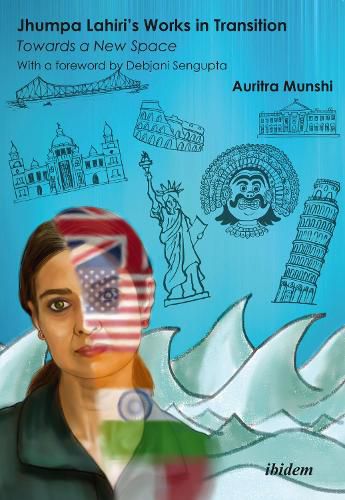Readings Newsletter
Become a Readings Member to make your shopping experience even easier.
Sign in or sign up for free!
You’re not far away from qualifying for FREE standard shipping within Australia
You’ve qualified for FREE standard shipping within Australia
The cart is loading…






Critical discussions on Jhumpa Lahiri's works are rampant, but they are confined to her short stories and fictional writings. This book offers a fresh perspective by showing how she gradually shifts her identity from a fiction writer to a non-fiction writer. And, more importantly, her adherence to the 'Italian phase' in academia has not previously been the subject of such a thorough critical investigation. There is a sudden change in her writing and her choice of language; she prefers Italy and the Italian language to English and Bengali. Such spatial as well as linguistic dislocation leads her towards a new space in which she anticipates her freedom of choice, confronts difficulties, and often gets confused, too: to be in Italy or not to be.
What this book seeks to touch upon is how Lahiri's fictional as well as nonfictional writings bring out her and her fictional characters' translational and transnational existence reinforcing her literary motto 'I translate, therefore I am'.
It is of special interest to students as well as scholars of Diaspora and Migration studies.
$9.00 standard shipping within Australia
FREE standard shipping within Australia for orders over $100.00
Express & International shipping calculated at checkout
Critical discussions on Jhumpa Lahiri's works are rampant, but they are confined to her short stories and fictional writings. This book offers a fresh perspective by showing how she gradually shifts her identity from a fiction writer to a non-fiction writer. And, more importantly, her adherence to the 'Italian phase' in academia has not previously been the subject of such a thorough critical investigation. There is a sudden change in her writing and her choice of language; she prefers Italy and the Italian language to English and Bengali. Such spatial as well as linguistic dislocation leads her towards a new space in which she anticipates her freedom of choice, confronts difficulties, and often gets confused, too: to be in Italy or not to be.
What this book seeks to touch upon is how Lahiri's fictional as well as nonfictional writings bring out her and her fictional characters' translational and transnational existence reinforcing her literary motto 'I translate, therefore I am'.
It is of special interest to students as well as scholars of Diaspora and Migration studies.